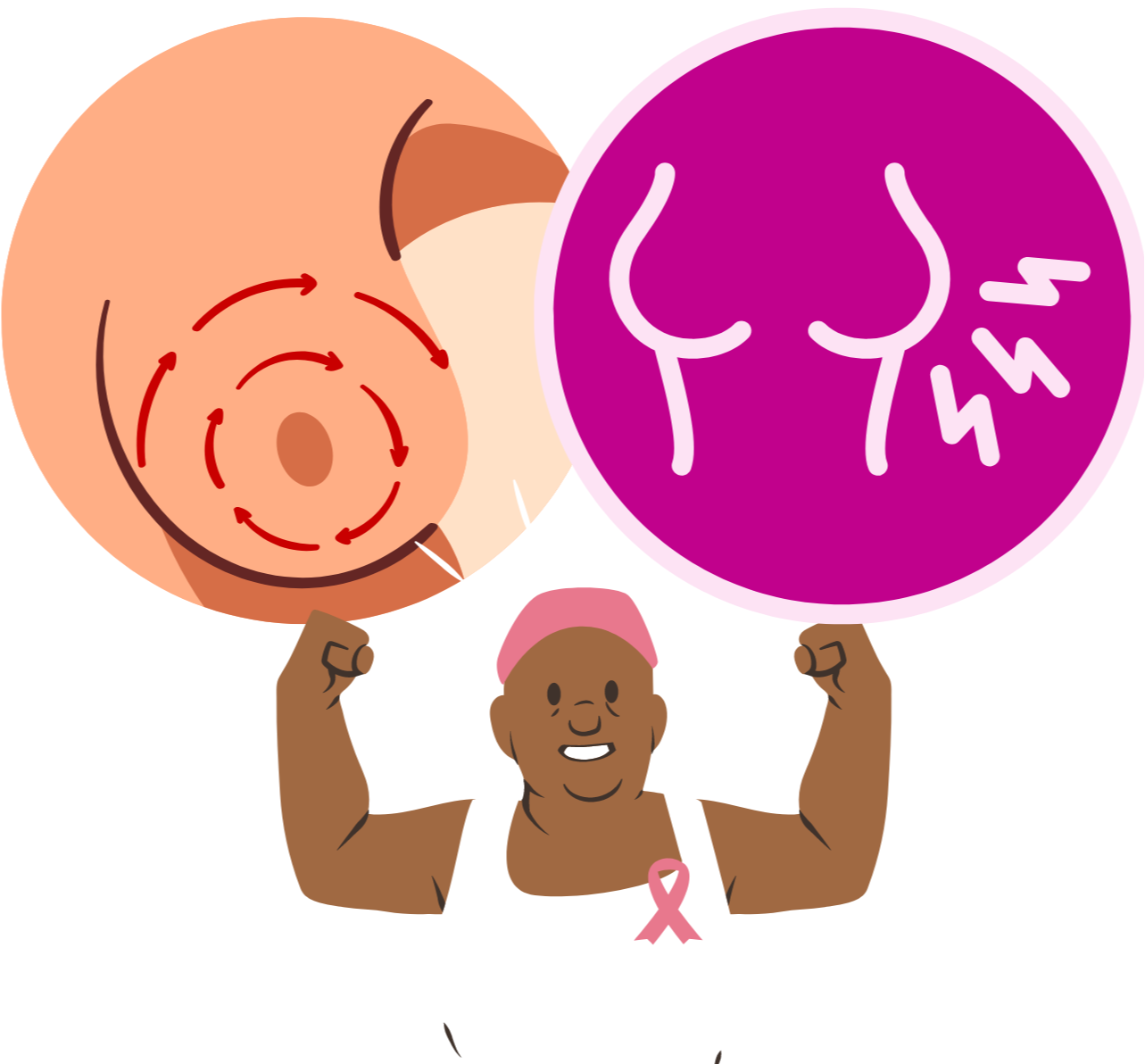Breast Cancer

What is Breast Cancer?
Breast cancer is a type of cancer that originates in the cells of the breast, often in the milk-producing glands (lobules) or the ducts that carry milk to the nipple. It is the most common cancer among women, but men can also develop breast cancer.
Who's at risk for Breast Cancer?
Breast cancer can affect people of all ages, but certain factors can increase the risk. These include age, gender, family history of breast cancer, personal history of breast conditions, certain genetic mutations, hormonal factors, exposure to ionizing radiation, and lifestyle factors like obesity and alcohol consumption.
What causes Breast Cancer?
The exact cause of breast cancer is not fully understood, but it is believed to result from a combination of genetic, hormonal, and environmental factors. Some breast cancers can be linked to inherited genetic mutations, such as the BRCA1 or BRCA2 genes.
How does Breast Cancer start?
Breast cancer typically starts when cells in the breast tissue begin to grow and divide uncontrollably, forming a tumor. The growth and development of these abnormal cells can eventually invade surrounding tissue and spread to other parts of the body.
What are the symptoms of Breast Cancer?
Symptoms of breast cancer can include a lump or thickening in the breast, changes in the size or shape of the breast, nipple discharge or inversion, skin changes on the breast, and swollen lymph nodes in the armpit.
How is Breast Cancer diagnosed?
Breast cancer is diagnosed based on a comprehensive evaluation that includes a review of the individual's medical history, a description of symptoms, and a physical examination. A doctor may also order tests such as mammography, ultrasound, MRI, or a biopsy to confirm the diagnosis and determine the extent of the cancer.
How can Breast Cancer be treated?
Treatment for breast cancer depends on the stage and subtype of the cancer and may involve a combination of surgery, radiation therapy, chemotherapy, hormonal therapy, and targeted therapy. The goal of treatment is to remove the tumor, prevent the cancer from spreading, and preserve as much healthy breast tissue as possible.
What complications may occur with Breast Cancer?
If left untreated, breast cancer can spread to other parts of the body, such as the bones, lungs, or liver, and become life-threatening. Treatment for breast cancer can also lead to complications, such as infection, bleeding, lymphedema, and changes in the appearance or sensation of the breast.
How can I prevent Breast Cancer?
Preventing breast cancer involves reducing risk factors, such as maintaining a healthy weight, limiting alcohol consumption, and staying physically active. Regular breast cancer screenings, such as mammograms, can also help detect breast cancer at an early stage, when treatment is most effective.
Long-term management of Breast Cancer
Long-term management of breast cancer may involve ongoing surveillance, follow-up appointments, and monitoring for signs of recurrence or complications related to treatment. Individuals who have been treated for breast cancer should maintain a healthy lifestyle and stay in close communication with their healthcare team.
What is recent research saying about Breast Cancer?
Recent research on breast cancer focuses on understanding the underlying causes, improving treatment options, and identifying new treatment approaches. Studies are exploring the role of genetics, molecular markers, and environmental factors in the development of breast cancer. Additionally, research is being conducted on new medications and therapies, such as immunotherapy and targeted therapy, to help manage the disease and improve overall survival rates.
Where can I go for more information on Breast Cancer?
For more information on breast cancer, visit the American Cancer Society (ACS) website, the National Cancer Institute (NCI) website, or contact a local healthcare professional or cancer support organization.

